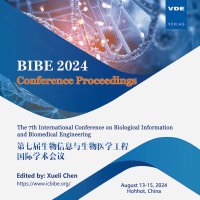Early Diagnosis of Non-Small Cell Lung Cancer Based on Plasma Cell-Free RNA Fragmentomics and Machine Learning Modeling
Conference: BIBE 2024 - The 7th International Conference on Biological Information and Biomedical Engineering
08/13/2024 - 08/15/2024 at Hohhot, China
Proceedings: BIBE 2024
Pages: 5Language: englishTyp: PDF
Authors:
Piao, Yanyan; Fu, Hongwen; Wu, Yuzhou; Ge, Qinyu
Abstract:
Non-small cell lung cancer (NSCLC) is an extremely common subtype of lung cancer. Accurate early diagnosis and identification of NSCLC offers more effective possibilities for early intervention and cure of lung cancer patients. Plasma cell-free RNA (cfRNA) is a potentially effective genetic material to identify the patients, but is difficult to study before, because of its low content and multi-terminal diversity. Recently, there have been slight breakthroughs with advances in technology, such as high-throughput sequencing method and big data algorithm. In this paper, we focused on the potential advantages of cfRNA fragment characterization in the differential diagnosis of cancer pa-tients. A corresponding model was established for early cancer diagnosis using machine learning algorithms, which was also applied well in the validation set. The data results prove that there are significant differences in the distribu-tion of the lengths of the cfRNA fragments possessed by cancer patients and healthy samples, and that histology char-acteristics of the cfRNA fragments could be used as a reference index for the diagnosis of cancer patients.


